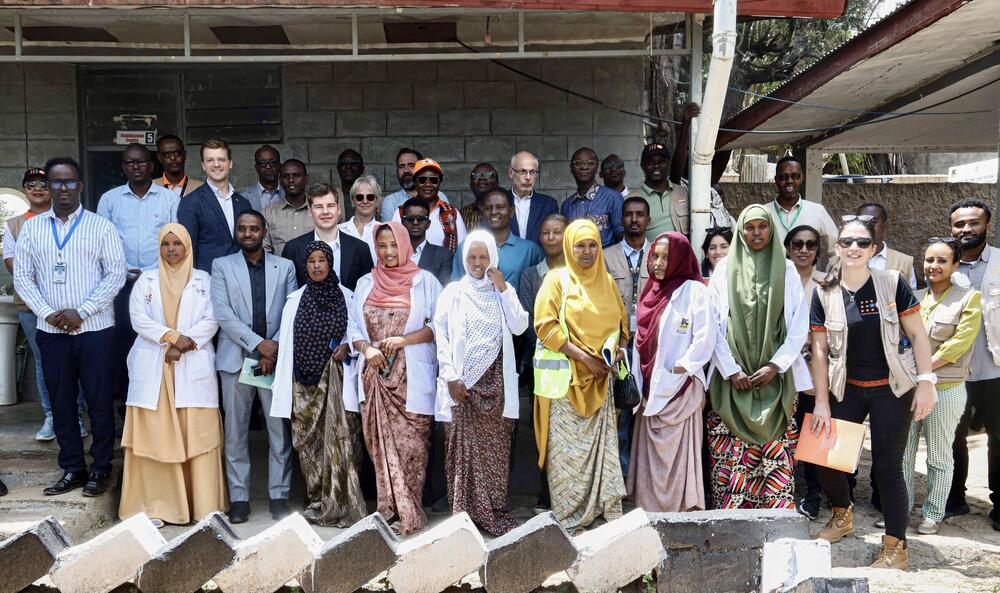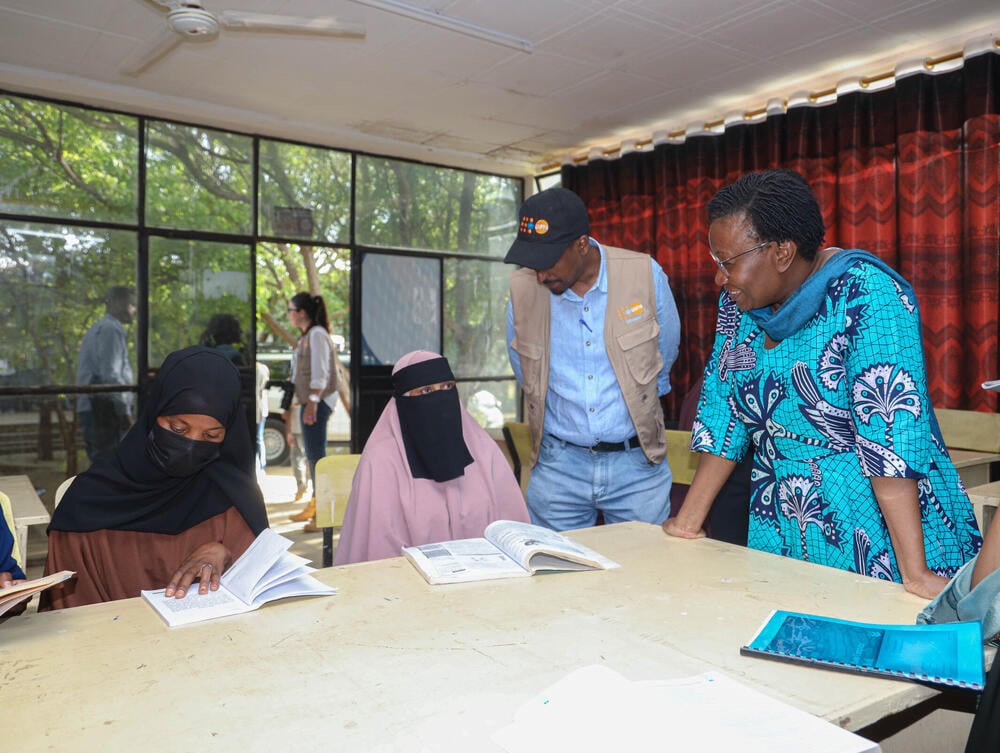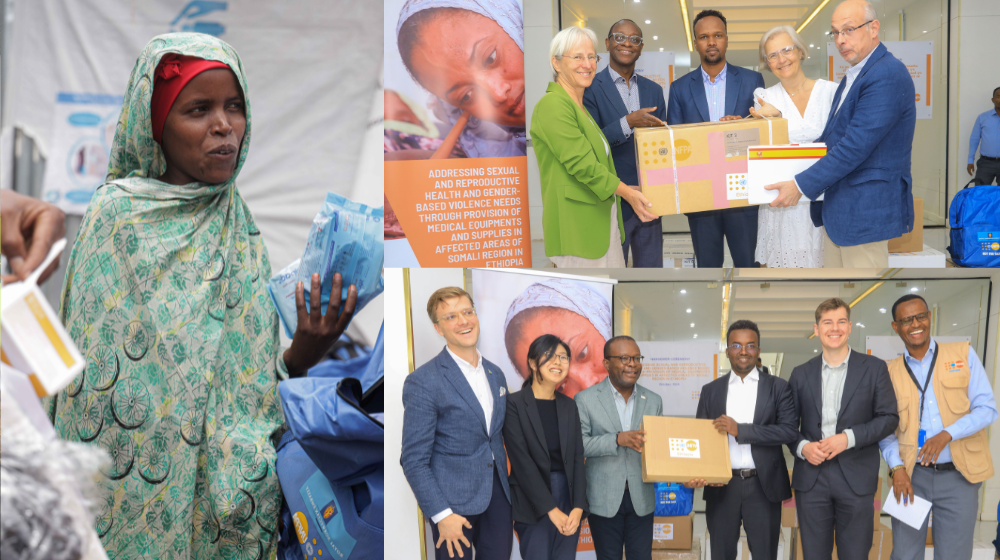On October 16-17, UNFPA Ethiopia led a high-level mission to the Somali Region, spearheaded by Lydia Zigomo, UNFPA Regional Director for East and Southern Africa, Koffi Kouame, UNFPA Country Representative, and Saturnin Epie, Chief of UNFPA Representation Office to the African Union. The delegation, which included the Ambassadors of Spain, Portugal, and the Netherlands, as well as officials from the Embassies of Sweden, Denmark, and Japan, observed firsthand UNFPA’s pivotal role in expanding essential health services for women and young people, showcasing transformative healthcare solutions through ongoing interventions in the region.
The delegation met with H.E. Mr. Mustafa Muhumed Omar, President of Somali Region, and key Bureau Heads to strengthen partnerships and explore innovative solutions for improving outcomes in maternal health, family planning, and GBV. The discussions highlighted the critical need for climate-adapted health services to support communities affected by climate change across the region.

At the Karamara Referral Hospital, the delegation observed how UNFPA’s support with medical supplies and training has improved maternal and reproductive health services for 1.5 million individuals in the region. At the UNFPA-supported One-Stop Center at the hospital, which provides essential support for GBV survivors, the delegation discussed the need for expanding services and addressing resource gaps.
The delegation also visited the Koloji Internally Displaced Persons (IDP) camp, where it engaged with health care providers and observed the stretched capacity of health services catering to over 100,000 displaced individuals. During their visit to the Bombas Health Center, the delegation learned about the essential role of community-based groups, like mother-to-mother support groups, in promoting maternal health and reducing maternal deaths. Delegates encouraged these groups to continue their work and involve community leaders in gender equality initiatives.

The visit to the Jigjiga youth center emphasized the importance of youth empowerment. The center provides vital services, including SRH education and ICT training, amid such challenges as limited resources and inadequate facilities. The delegation discussed strategies to expand the center’s capacity and resources to support the youth development effort effectively.
The high-level visit concluded with a handover ceremony of medical equipment and dignity kits to enhance health access in the Somali Region. Ms. Zigomo highlighted the critical need for sustained collaboration and investment to expand SRH and GBV services across the region. Development partners expressed their commitment to mobilize resources to address the to meet the region’s urgent needs and drive transformative health outcomes for women, young people, and families.


